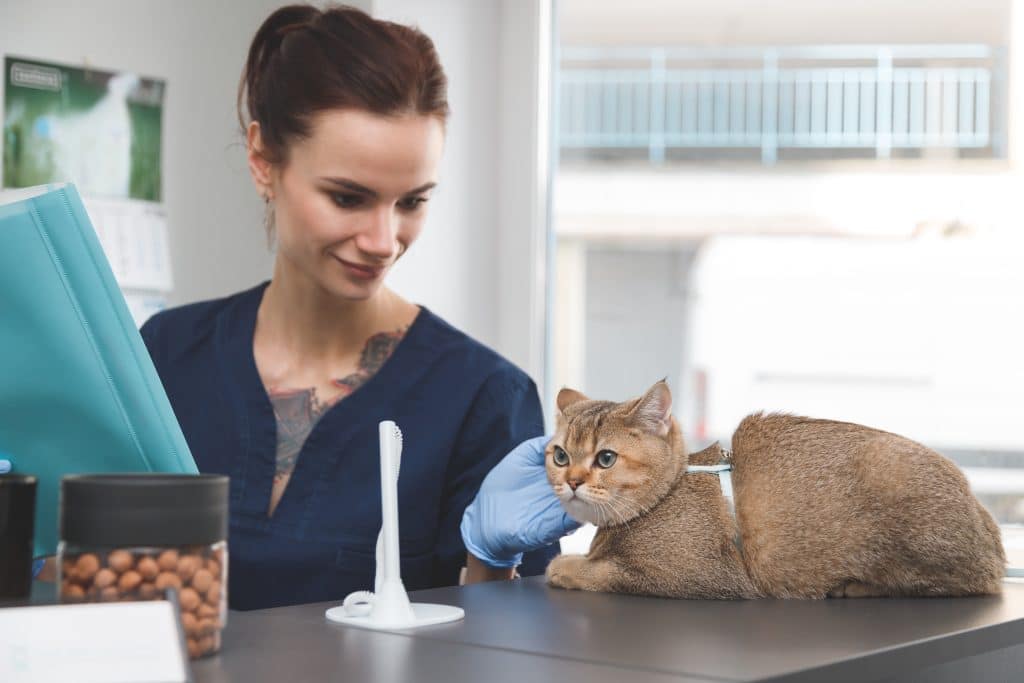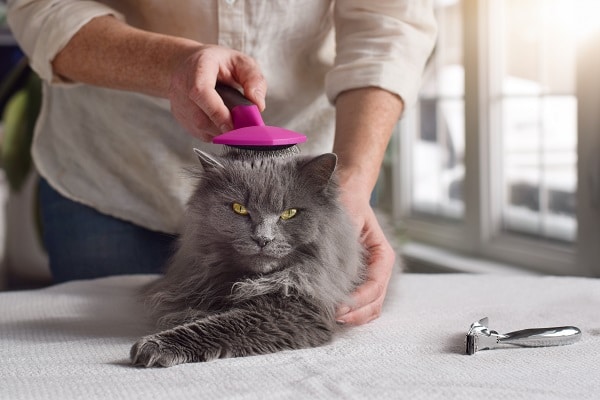While cats live a long time, that doesn’t mean they will live forever. As your cat ages, they will require different care than when they were a kitten. Senior cats need plenty of love and attention, as well as specific types of food and care. This article will discuss how to take care of your elderly cat best. It will cover everything from diet to exercise to medication. So, if you have an aging kitty at home, read on for some helpful tips!
Take Them To The Vet Regularly

One of the most important things you can do for your senior cat is to regularly take them to the vet. Like humans, as cats age, they are more prone to developing health problems. By taking your cat to the vet regularly, you can catch any potential issues early and get them treated before they become serious. Your veterinarian will be able to perform routine tests and exams on your cat, which can help identify any health concerns. They may also recommend certain vaccinations or medications for your senior cat. It’s important to follow their recommendations so that your pet can stay healthy and comfortable as they age.
Monitor Their Mental Health

As your senior cat ages, you’ll want to keep a close eye on their mental health. Like people, cats can suffer from conditions similar to dementia and Alzheimer’s disease. If you notice that your cat is becoming more forgetful or confused, or if they’re starting to exhibit other signs of mental decline, take them to the vet for a checkup. Early diagnosis and treatment can be incredibly beneficial for slowing the progress of these mental health issues. You can also do a few things at home to help keep your senior cat’s mind sharp. Provide them with plenty of toys and puzzles to keep them entertained, and make sure they have plenty of opportunities to socialize with you and other pets. If your cat starts to seem particularly withdrawn or lethargic, talk to your vet about whether they might benefit from medication. With a little extra care, you can help make sure that your senior cat is comfortable for the last years of their life.
Provide Them With The Proper Diet

As your cat enters their senior years, they will begin to experience changes in their appetite. They may start to eat less or more than they used to. You’ll need to adjust their diet accordingly to ensure they’re getting the nutrients they need. Some of the more common senior cat foods include wet and dry food low in phosphorus and sodium. You may also need to supplement their diet with fatty acids, which help promote healthy skin and coat. Older cats are also more prone to developing health problems like diabetes and kidney disease, so it’s important to consult with your vet about the best diet for your senior cat.
Watch Their Weight

As your cat gets older, they may start to put on a few extra pounds. This is especially true if they’re less active than they used to be. While a little extra weight might not seem like a big deal, it can be pretty dangerous for your senior cat. Carrying around extra weight puts strain on their joints and can lead to health problems like diabetes and heart disease. Make sure you keep a close eye on your cat’s weight and adjust their diet or exercise accordingly if they start to gain too much. You might need to cut back on their food intake or switch to lower-calorie food. If your cat is having trouble getting around, try to find ways to help them be more active. A little extra effort now can help your cat stay healthy and happy for the years to come!
Keep Up On Their Grooming And Hygiene

Just because they are getting old doesn’t mean your cat doesn’t still need grooming. Senior cats often require more frequent grooming than younger cats since they are more prone to developing mats and tangles in their fur. Make sure you brush your cat’s coat at least once a week, and more if necessary. You should also watch for any cuts or wounds and make sure they are healing properly. If your cat starts to smell bad, it might be time for a bath. Senior cats can often be resistant to bathing, so try using a pet shampoo or conditioner that will help make the process easier. And don’t forget about their nails! You’ll need to trim them every few weeks to keep them from getting too long.
Conclusion
As your cat gets older, some of the care they need may change a bit. You can help your senior cat live a happy and healthy life by following these tips. Just remember to take things slow, consult with your vet, and make sure you are providing the best possible care for your furry friend. With a little love and attention, your senior cat will be purring along for many years to come!